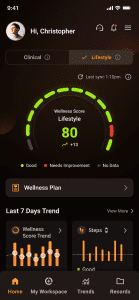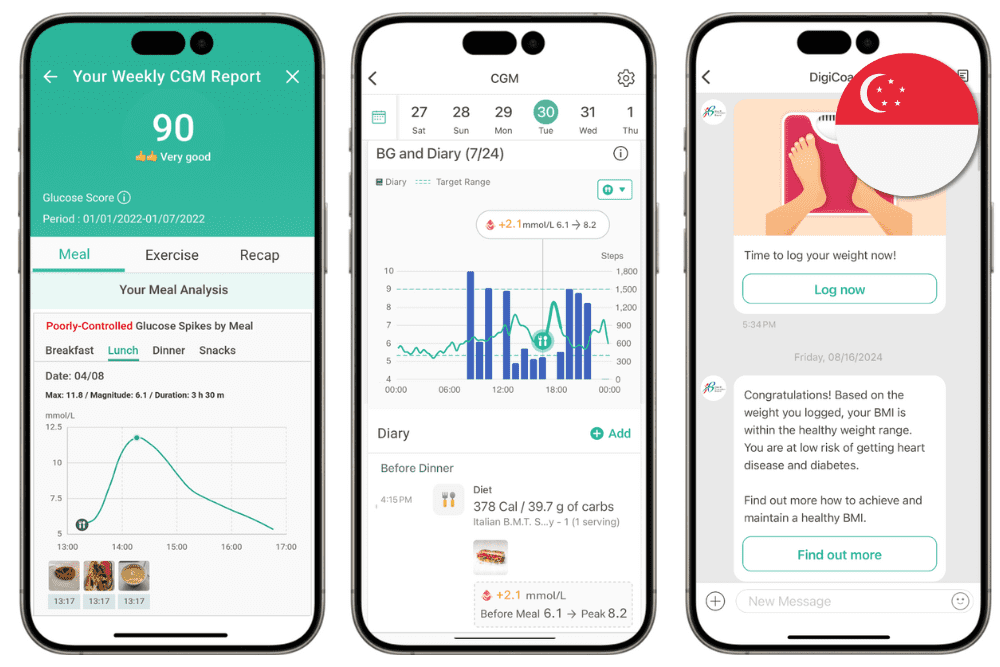Google and Singapore’s HPB are piloting tech-driven health programmes to manage chronic diseases like diabetes and hypertension effectively.
By integrating real-time feedback and actionable recommendations, these initiatives aim to enhance preventive care and improve overall health outcomes.
HPB CEO Tay Choon Hong shared his optimism in a press release, highlighting the potential impact of these initiatives.
“Our latest collaborations will allow us to trial new solutions that deliver more timely and actionable recommendations to Singaporeans to prevent or manage chronic conditions.” he said.
New Programmes Target Diabetes, Hypertension, and Lifestyle Changes
Singapore places preventative healthcare at the forefront of its efforts to combat chronic diseases. HPB drives innovative pilot programmes that combine clinical expertise with advanced technology.
These programmes empower individuals to make informed and proactive health choices, delaying or preventing conditions such as diabetes, hypertension, and hyperlipidaemia.
HealthTrack SG
The HealthTrack SG programme, created with Google, ConnectedLife, and Fullerton Health, personalises chronic disease management. It integrates clinical data, including blood pressure, cholesterol, and glucose levels, with lifestyle metrics such as step counts, physical activity, and sleep quality tracked through Fitbit wearables.

This comprehensive data is visualised on a dashboard, allowing doctors to assess patients’ progress during consultations and recommend specific actions.
Patients also receive a Wellness Score, summarising their health and highlighting areas for improvement.
DigiCoach
DigiCoach, a 12-week digital health programme developed by Health2Sync in collaboration with Abbott, offers an innovative approach to managing glucose levels through lifestyle adjustments.
By leveraging continuous glucose monitoring (CGM) technology, participants receive real-time feedback on how dietary choices and physical activities impact their glucose levels. This enables them to adopt healthier habits, such as balanced meals and post-meal physical activities, which are key to better diabetes management.
Additionally, the programme integrates personalised coaching through a mobile app that offers tailored advice and educational content. This holistic approach encourages participants to sustain long-term lifestyle changes.
Real-World Testing and Future Potential
Both the HealthTrack SG and DigiCoach programmes are being piloted in real-world settings to evaluate their effectiveness and scalability. They plan to involve up to 6,000 participants and collect data to assess how personalised, tech-driven approaches improve health outcomes.
Recruitment for the DigiCoach programme began in July 2024 and will continue through April 2025. Participants undergo a 12-week programme, where they track their glucose levels, food intake, and activity through the Health2Sync app.
For more information on eligibility requirements and to register your interest, click here.
In parallel, the HealthTrack SG programme, scheduled to launch in early 2025, will monitor patients over a year, combining clinical data with lifestyle metrics from wearable devices like Fitbit trackers.
Building a Foundation for Nationwide Integration
The success of these pilot programmes could pave the way for broader implementation across Singapore’s healthcare system. Key to this vision is the integration of data from various sources to enable seamless and informed healthcare delivery.
Minister for Health Ong Ye Kung highlighted the importance of centralised data systems, noting, “Data integration and centralisation is an important point. When I go overseas for healthcare conferences, this is always a subject that I will discuss with fellow Health Ministers all around the world.”
He highlighted Singapore’s advanced position, stating, “Singapore’s position is closer to Estonia and Norway, as we already have a centralised system in NEHR.”
The National Electronic Health Record (NEHR) plays a critical role in this integration. By consolidating essential health data, the system ensures that healthcare providers have access to accurate, up-to-date information, reducing care fragmentation and enabling smoother patient journeys.
Scaling Preventive Healthcare
Singapore’s proactive approach to chronic disease management reflects a broader global shift towards preventive healthcare.
Minister Ong highlighted the urgency of preventive efforts, stating, “As the whole world is ageing, some a lot faster than others, the whole world is looking at how to keep their population healthy.”
“It becomes a big healthcare imperative and a top priority for healthcare systems all around the world.”
Insights from the HealthTrack SG and DigiCoach programmes could shape national health policies, creating more scalable and cost-effective solutions.
Tay Choon Hong, Chief Executive of HPB, echoed this optimism: “These solutions can be potentially scaled up in future to help more Singaporeans.”
If proven successful, these pilots could mark a significant milestone in integrating technology into everyday healthcare.

